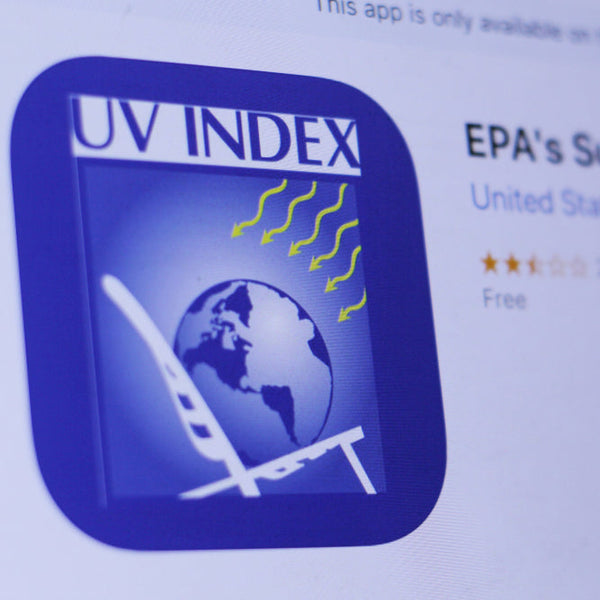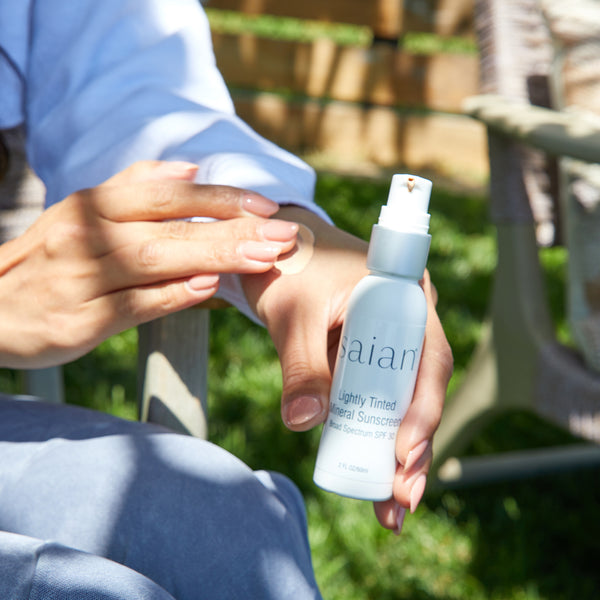Clinical Strength Skincare Products and SPF

When diving into the world of skincare, you might notice that clinical strength products, often prescribed by dermatologists or available through specialized retailers, typically do not include sunscreen in their formulations. This may seem surprising given the universal advice to protect skin from the sun's harmful UV rays. However, there are several important reasons for this omission, all of which underscore the need for a dedicated approach to sun protection.
Optimal Use of Active Ingredients
Clinical strength skincare products are formulated with high concentrations of active ingredients, such as retinoids, alpha hydroxy acids (AHAs), beta hydroxy acids (BHAs), and other potent compounds designed to treat specific skin concerns like acne, hyperpigmentation, and aging. These ingredients are often most effective when applied directly to clean skin, without the potential interference of other substances. Including sunscreen in these products could dilute their potency or alter their effectiveness.
Twice Daily Usage
Many clinical strength products are intended for use twice daily—once in the morning and once at night. Incorporating sunscreen into these products would be impractical for nighttime use, as sunscreen is only necessary during the day when UV exposure is a concern. Using sunscreen at night offers no protective benefit and could lead to unnecessary exposure to additional chemicals.
Personalized Sun Protection
Sunscreen needs vary significantly based on factors such as skin type, sensitivity, and the level of UV exposure. By keeping sunscreen separate, individuals have the flexibility to choose a product that best suits their needs. Whether it’s a lightweight formula for oily skin, a moisturizing sunscreen for dry skin, or a mineral-based option for sensitive skin, separating sunscreen from clinical skincare products allows for a more personalized and effective skincare regimen.
Ensuring Adequate Sunscreen Application
To achieve optimal sun protection, dermatologists recommend applying a generous amount of sunscreen—specifically, two fingers worth (the length of two fingers) to adequately cover the face. This ensures that enough product is used to form a protective barrier against UV rays. If sunscreen were included in clinical strength products, there’s a risk that users might not apply enough product to achieve effective sun protection, particularly if they are focusing on using the product for its active ingredients rather than as a sunscreen.
Layering Products Correctly
Effective skincare often involves layering products in a specific order. Generally, you start with the lightest formulations, such as serums, and progress to heavier creams. Sunscreen is typically the last step in the daytime skincare routine. By keeping sunscreen as a separate step, it allows users to follow this layering approach correctly, ensuring that each product is applied in the most beneficial order for maximum efficacy.
While it might seem convenient to have a one-stop product that combines clinical strength skincare with sun protection, the reality is that separate applications ensure the effectiveness of both. Clinical strength products can deliver their potent active ingredients directly to the skin without interference, and sunscreen can be applied generously and appropriately tailored to individual needs. Remember, for adequate sun protection, always apply two fingers worth of sunscreen to your face as the final step in your morning skincare routine. This approach ensures that you get the best of both worlds—high-performance skincare and robust UV protection.
Optimal Use of Active Ingredients
Clinical strength skincare products are formulated with high concentrations of active ingredients, such as retinoids, alpha hydroxy acids (AHAs), beta hydroxy acids (BHAs), and other potent compounds designed to treat specific skin concerns like acne, hyperpigmentation, and aging. These ingredients are often most effective when applied directly to clean skin, without the potential interference of other substances. Including sunscreen in these products could dilute their potency or alter their effectiveness.
Twice Daily Usage
Many clinical strength products are intended for use twice daily—once in the morning and once at night. Incorporating sunscreen into these products would be impractical for nighttime use, as sunscreen is only necessary during the day when UV exposure is a concern. Using sunscreen at night offers no protective benefit and could lead to unnecessary exposure to additional chemicals.
Personalized Sun Protection
Sunscreen needs vary significantly based on factors such as skin type, sensitivity, and the level of UV exposure. By keeping sunscreen separate, individuals have the flexibility to choose a product that best suits their needs. Whether it’s a lightweight formula for oily skin, a moisturizing sunscreen for dry skin, or a mineral-based option for sensitive skin, separating sunscreen from clinical skincare products allows for a more personalized and effective skincare regimen.
Ensuring Adequate Sunscreen Application
To achieve optimal sun protection, dermatologists recommend applying a generous amount of sunscreen—specifically, two fingers worth (the length of two fingers) to adequately cover the face. This ensures that enough product is used to form a protective barrier against UV rays. If sunscreen were included in clinical strength products, there’s a risk that users might not apply enough product to achieve effective sun protection, particularly if they are focusing on using the product for its active ingredients rather than as a sunscreen.
Layering Products Correctly
Effective skincare often involves layering products in a specific order. Generally, you start with the lightest formulations, such as serums, and progress to heavier creams. Sunscreen is typically the last step in the daytime skincare routine. By keeping sunscreen as a separate step, it allows users to follow this layering approach correctly, ensuring that each product is applied in the most beneficial order for maximum efficacy.
While it might seem convenient to have a one-stop product that combines clinical strength skincare with sun protection, the reality is that separate applications ensure the effectiveness of both. Clinical strength products can deliver their potent active ingredients directly to the skin without interference, and sunscreen can be applied generously and appropriately tailored to individual needs. Remember, for adequate sun protection, always apply two fingers worth of sunscreen to your face as the final step in your morning skincare routine. This approach ensures that you get the best of both worlds—high-performance skincare and robust UV protection.










